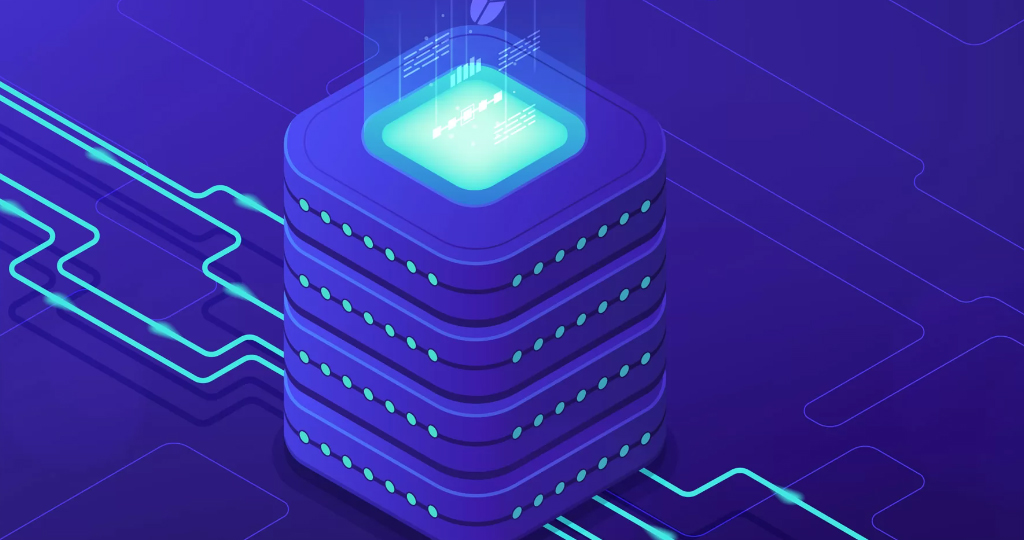Way2Smile Solutions, a web development agency in Dubai, writes a blog about the "Top 10 Databases for Web Applications in 2024." The blog explores the most reliable and efficient databases for modern web applications, highlighting the features and benefits of each.
An Introduction: Database
A database is a structured collection of data organized for efficient storage, retrieval, and updating. It serves as a critical component for storing information that can be accessed and manipulated by web applications. Databases are essential for managing large volumes of dynamic content, user information, and transactions on websites. They play a crucial role in enabling websites to deliver personalized experiences, handle user interactions, and support complex functionalities. By utilizing database web developers can ensure data integrity, scalability, and security in their applications.
Types of Databases
Different types of databases are utilized alongside the primary categories. These include:
- Hierarchical Databases
- Network Database
- Cloud Database
- Personal Database
- Operational Database
- Graph Database
- Open-Source Databases
- Object-Oriented Databases
- Centralized Database
- Distributed Database
- Relational Databases
- NoSQL Databases
What is the importance of database in web application?
Databases play a critical role in web applications by serving as the central repository for storing, organizing, and managing vast amounts of information. One of the key importance of databases in web applications is that they allow for efficient data retrieval and manipulation, making it easier to deliver dynamic and personalized content to users in real-time. Additionally, databases enable web applications to securely store user information, facilitate transactions, track user activities, and support scalability as the amount of data and user interactions grow. Moreover, databases help maintain data integrity and consistency by enforcing data validation rules and referential integrity constraints, ensuring the reliability and accuracy of information presented to users. In summary, databases are indispensable components of web applications that drive seamless user experiences, enable robust functionality, and support the overall success of online businesses.
What are the 10 Best Databases for Web Applications in 2024?
A database is analogous to an office space where all important data and reports are stored. Because the information stored in the database is extremely sensitive, we must exercise caution when accessing its contents. There is an expansive list of database management systems, so we've narrowed it down to those that are the most reliable and efficient.
MySQL
Oracle
PostGre
MongoDB
Redis
SQLite
DynamoDB
Microsoft SQL
ElasticSearch
Cassandra
These are the common database software used in businesses across industries. Let’s take a deeper look at these, to understand what will work and not work for your business. Let's get started:
1. MySQL
MySQL allows forward-thinking database administrators and software developers to create and deploy next-generation web, embedded, mobile, and cloud software-as-a-service (SaaS) / platform-as-a-service (PaaS) / database-as-a-service (DBaaS) applications using cutting-edge database frameworks and hardware platforms. This is the simplest database and is most commonly used for web development solutions. MySQL is a highly scalable database system that can run on a variety of platforms including Linux, Windows, and Unix. MySQL's key features include the following:
- It is the most dependable because it supports ACID (Atomicity, Consistency, Isolation, and Durability)
- To maintain and administer servers, this popular RDBMS provides fast-loading utilities with varying memory caches
- It achieves high performance without sacrificing essential functionalities
- It provides complete data security because it is built on solid data security layers
- Only authorized users with encrypted passwords can access the database
2. Oracle
Oracle is the most successful database management system, trailing only MS SQL. Oracle databases are used in small businesses that are gaining popularity due to their scalability and high performance. The fact that it was a well-established company from the start made it much more appealing and simple to use for smaller businesses. Also, this is the best database for startups in IT firms.
Learn more: Top Web Development Strategies for E-Commerce Success
3. Postgre
A powerful and open-source sql database system designed to meet the needs of industry and individuals. The chances are you don't know much about PostgreSQL if you only know PHP and WordPress. However, it's a relational, and one of the fastest open-source databases that developers in various industries use as it is ideal for Python and Ruby applications. Even so, you should use PostgreSQL with caution because it isn't as good as other solutions for read-heavy applications. As a result of such a large dataset, PostgreSQL's document storage may suffer if you need to generate reports regularly from existing data.
- Geolocation, arrays, and ranges are just a few of the built-in data types that will come in handy for some relational database applications.
- Full-text searches of your database are possible.
- JSON-style document storage, key-value storage, and XML are all natively supported.
4. MongoDB
MongoDB is the world’s best NoSQL database management system, and it handles document data rather than relational data as does the RDBMS platform. The tool has a robust query language. As a result, it is not as difficult to load and retrieve data from the RDBMS database program using object-oriented languages, which necessitates additional application-level mapping.
- Fully automated scale provisioning and management of complex, highly available multi-node clusters via API calls
- You can use this tool to create globally distributed clusters
- When necessary, data can be easily restored
- It offers MongoDB Atlas, the fastest cloud database
- It provides visualization, monitoring, and alerting on over 80 metrics that track the health of your cluster or integrate with third-party monitoring solutions
- It stores tables in a relational database using rich JSON documents
5. Redis
Based on the popular message queue software MQ, Redis is one of the best open-source SQL databases. With Redis, you can store keys and values and provide message assurance between applications. By eliminating the need to install and configure traditional database tools such as MySQL and PostgreSQL, Redis has the primary goal of helping web app developers solve problems quickly.
- Accessing data with Redis has low latency and high throughput
- Lists, Strings, Sorted Sets, Sets, Bitmaps, Hashes, HyperLogLogs, and other data structures are available in Redis
- It enables programmers to write complex code in fewer, simpler lines
- Redis' primary-replica architecture allows developers to create solutions that are highly reliable and provide consistent performance
Learn more: AI in Web Development: Build Smarter Websites Easier and Faster
6. SQLite
SQLite is a free database that has support for SQL queries and is the best database for python. SQLite's lack of administration overhead, performance benchmarks, rich features, and release cycles are also reasons to use it. This capability makes it ideal for portable applications such as games, as the same JavaScript code can be used to run it on phones, browsers, and computers.
- SQLite is a very lightweight database management system when compared to other top database management systems such as SQL Server or Oracle
- The database is stored on a computer's hard disc
7. DynamoDB
DynamoDB is the best SQL database and a key player in the database industry. It's not tied down to a specific platform, it's compatible with various tools, platforms, and languages for a better user experience. It also stores data locally in RAM for quick retrieval when required.
- Support for key-value and document data models
- Secondary indexes are available in DynamoDB, allowing you to query any attribute
- Amazon DynamoDB Accelerator improves DynamoDB read performance
- To provide triggers, DynamoDB integrates with AWS Lambda
8. Microsoft SQL
Microsoft SQL is the best relational database management system that accesses relational databases using Structured Query Language (SQL). T-SQL (Transact-SQL) is linked to Microsoft SQL Server, which adds a set of proprietary programming constructs. SQLOS (SQL Operating System) and Data Engine are the two most important components of Microsoft SQL Server.
- Microsoft SQL Server includes analysis service tools that aid in the development and management of OLAP and data mining applications
- It is a proprietary and fastest relational database management system with commercial and free licenses
- Provide ACID transactions that are guaranteed
- It is a multi-model database that can handle semi-structured, structured, and spatial data
Learn more: Why Custom Web Development?
9. ElasticSearch
ElasticSearch is a powerful search engine that can build fast and scalable web-enabled database applications. Elasticsearch is based on Lucene, a free and fastest open-source database in Java library for searching and storing data. It's a multi-tenant document-based search engine with a REST API. It scales easily horizontally through automatic sharing and a REST API.
10. Cassandra
Cassandra is one of the most popular SQL databases for building a high-performance database for your web application. Cassandra claims to be faster than other NoSQL alternatives. Cassandra is ideal for applications that require real-time data access of databases and strict performance guarantees. Cassandra's main characteristics are reliability and stability, as it has already been tested on 1000 nodes and various use cases. Cassandra is a hybrid that has the lowest latency for the entire data center experience and is hence considered the best cloud database.
- All failed nodes can be replaced with minimal or no downtime using Fault Tolerant
- Data is replicated across multiple nodes to provide a fault-tolerance system
- There are no network bottlenecks because each node in the cluster is independent
A few years ago, selecting a database was a much simpler process. All that was required was to select an easy relational database for the majority of their requirements. However, the selection process has become more intrinsic in modern software development.
Way2Smile Solutions can help you to identify the best databases for your web development in Dubai. Most modern businesses today run their operations on multiple databases in open-source SQL DB. This creates a complex situation because performing a common analysis integrating data from all of these databases can be a difficult task. First, a data integration solution that can integrate all data from these databases and store it in a centralized location must be built.
Businesses can then either create their data or use third-party data. The SQL databases list offers a list of the top database options for businesses in 2024. The best fit for your business can be determined by your needs and the services with guidance from one of the best SQL database management software consultants in Dubai.







